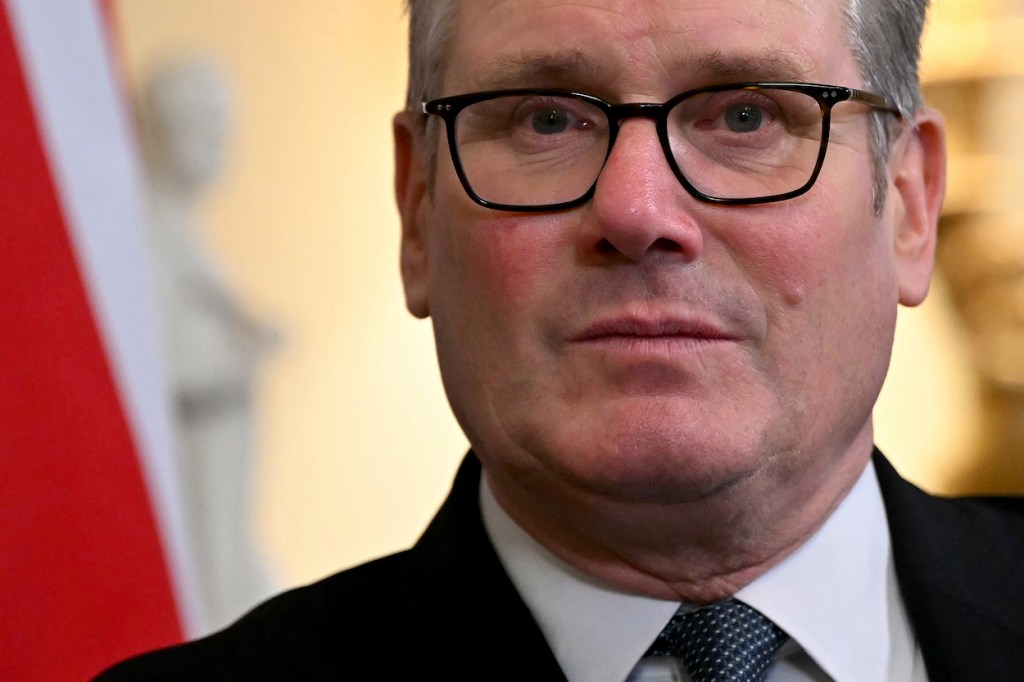Perhaps it is a rite of passage these days for a journalist to be cancelled. But I never expected that an elite school – one designed to create tomorrow’s international leaders, founded by a Jewish refugee from Nazi Germany – would be the ones to cancel a talk about anti-Semitism from me, the son of a Holocaust survivor.
My invitation was not controversial – at least, not at first
As a journalist and columnist with extensive experience reporting from Israel, covering terrorist attacks across Europe, and documenting the rise of anti-Semitism internationally, I have encountered hostility before. But I had not expected it to come from an institution dedicated to fostering global understanding.
The school in question is UWC Atlantic, a boarding school in Wales with an esteemed reputation. Founded in 1962 by Kurt Hahn, a German-Jewish educator who fled the Nazis, the college was meant to be a beacon of international cooperation, bringing together students from diverse backgrounds, including conflict zones, to engage in rigorous education and meaningful dialogue.
Hahn, who also founded Gordonstoun (where King Charles III was educated), believed in resilience, challenge, and the power of open discussion. Today, UWC Atlantic educates the Spanish royal family, alongside students from around the world, selected through scholarships to ensure a wide socio-economic and national diversity.
Yet, when a group of Jewish and Israeli-backgrounded students, feeling increasingly alienated and unheard, suggested that I come to speak, the school initially agreed but later crumbled under pressure.
My invitation was not controversial – at least, not at first. The school recognised the educational value of my work and sought to ensure that its students had access to a range of perspectives, particularly on the troubling rise of anti-Semitism since October 7th. I took part in extensive discussions with the school’s leadership, explaining my approach and ensuring that the event would be constructive and sensitive to all students.
I was more than willing to accommodate concerns. I acknowledged the diverse backgrounds of the student body, including those from regions directly affected by the Israel-Gaza war, and I was open to adapting my talk accordingly. My goal was not provocation but education. I was there to inform, not inflame.
Yet when some students began circulating my Spectator articles and expressing their distress at my mere presence, the school panicked. They cited concerns over students’ “emotional safety” and the difficulty of managing their reactions. The solution they proposed? That I record a pre-vetted video answering pre-approved questions, ensuring that my presence would be absent in every possible way.
A pre-recorded, pre-screened video is the antithesis of real engagement. The school had repeatedly stressed the importance of me gauging the room and being responsive to students’ feelings. But how could I possibly do that when I was to be reduced to a remote voice, unable to see or interact with my audience? The very essence of education – especially the kind Kurt Hahn championed – relies on dialogue, on the exchange of ideas, on the ability to respond dynamically to the people in the room.
I tried to reason with them, offering alternative formats, discussions, or additional safeguards to ensure a productive conversation. But the school had already made its decision. They had decided that certain students’ discomfort – not real harm, not threats, just discomfort – was enough to justify silencing a discussion that others had actively requested. In one discussion, I was told that some students might lose control of their emotions and say something “perceived as being anti-Semitic”. Their concern was that this might be “incriminating”, putting the student in a “vulnerable position”. The real risk was not anti-Semitic abuse, but how they would be judged for it. When faced with even the potential for a difficult conversation, they capitulate to those who shout the loudest.
How can these students be expected to lead if they cannot even listen to an opposing perspective? How can they claim to be global citizens if their response to a viewpoint they dislike is to demand its removal rather than its engagement? The world they will inherit will not accommodate their fragility. It will require resilience, the ability to debate, and the willingness to confront complexity.
Kurt Hahn understood that. That’s why he built schools that challenged students physically, intellectually, and emotionally. He believed in fostering strength, not fragility. But the adults now running his institution lack the courage he sought to instil in young people. A school founded by a Jewish refugee, dedicated to international understanding, has silenced a Jewish journalist speaking about anti-Semitism. They have not fostered peace or mutual respect; they have emboldened the idea that certain perspectives – Jewish perspectives, in particular – are too dangerous to be heard.
My presence at UWC Atlantic was never intended to upset or distress anyone. It was simply an opportunity to give voice to a very mainstream set of experiences and perspectives: those of Jewish people in the UK and around the world since October 7th. I also sought to share the accounts of the many Israelis I have met and spoken to, including those who survived the horrors of that day, some even as former hostages or as families of those still held captive in Gaza.
My intention was to present the very real fears, risks, and dangers facing Jews internationally at a time when anti-Semitism has reached terrifying levels not seen in most of our lifetimes. If such an outlook was deemed too provocative or too frightening – either for students or, perhaps, even for some of the teachers – that says more about them and the world they are trying to shape than it does about me.
A spokesperson for UWC Atlantic told The Spectator that the school ‘remains committed to fostering open and meaningful discussions that enhance our students’ understanding of important world issues’. If so, then my offer to speak on anti-Semitism still stands.
I am a proud Jew, and I stand for truth, reason, debate, and dialogue. That includes listening to others and engaging in difficult but necessary conversations. But I will never accept being shut down for doing so: because rational, calm, and sympathetic discussion will always be better than hatred, anti-Semitism, and terrorism.








Comments